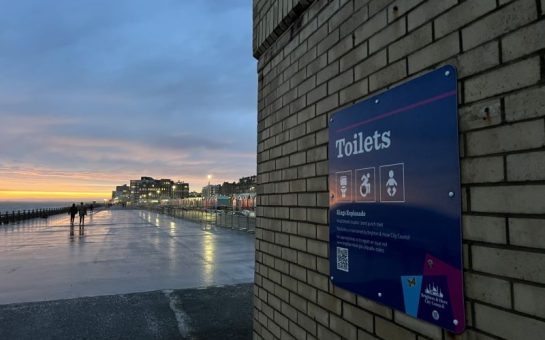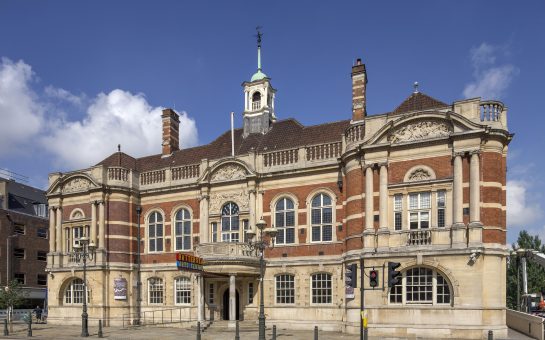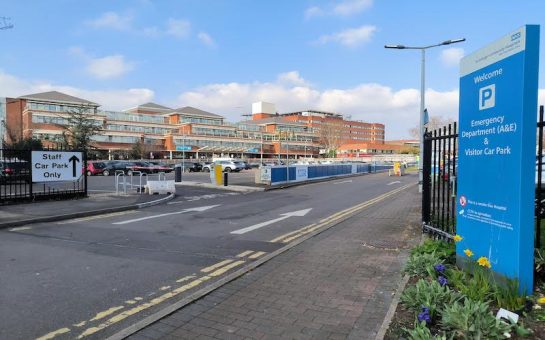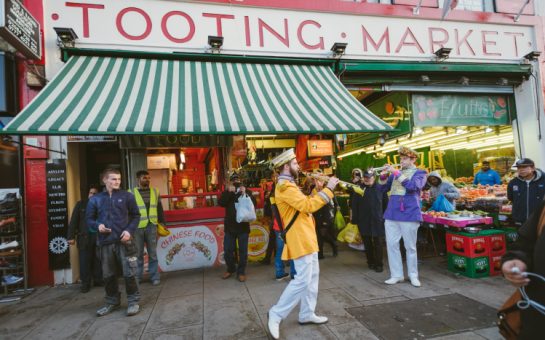The young soldier, who died in World War One, joined the army by concealing his true age.
A plaque honouring a brave 15-year-old Wandsworth soldier who died in World War One, after joining the army by concealing his true age, was unveiled in Roehampton on Remembrance Day on Friday.
The plaque was unveiled by the Mayor of Wandsworth, Councillor Jane Cooper, at 16 Roehampton High Street, the road on which Private Albert Reginald Twyford was born in 1901.
Private Twyford – known as Reggie by family and friends – was 14 when he volunteered for the army in 1915, convincing recruiting staff he was 18 years old. Soldiers were required to be 19 to serve abroad.
“The story of this brave young man and his tragic death at such a young age is absolutely heartbreaking,” the Mayor said.
“It is a poignant reminder of why we must never forget the sacrifices of previous generations who fought for freedom – and why we must continue to honour the bravery and courage of those in our armed forces who are still serving today.”
Private Twyford was part of the 13th Battalion of the East Surrey Regiment – a ‘pals battalion’ raised by the then Mayor of Wandsworth.
Men from Putney, Roehampton, Southfields and Wandsworth all signed up to it to serve alongside friends and colleagues.
Shipped to France on the eve of the Battle of the Somme, Reggie survived on the front line for two months until he was killed in a German artillery attack on the British trenches on 8 August 1916.
The Mayor said it was fitting to unveil a tribute to Private Twyford as part of Wandsworth Council’s Green Plaque Scheme, which she said aimed to create a deeper pride in the borough.
The unveiling ceremony, which was attended by students from Elliott and St Cecilia’s Schools – many of whom were older than Reggie when he died – was followed by a talk at Roehampton Library by military historian and author Paul McCue.
In an interview with SW Londoner, Mr McCue said the attitude of young people towards fighting for their country has inevitably changed over the years.
“It’s important to remember Private Twyford and the members of the Wandsworth Battalion because it shows how fortunate our youth are today in not feeling that they have to do what Reggie did,” he said.
“The jingoism of the first world war didn’t even survive until the second world war. The message it conveyed was that of serving your King and country, going off and defeating the enemy, and coming back a hero.
“It was a very simplistic, black-and-white message which young people today wouldn’t go for. They think for themselves a lot more and are not as deferential to authority, so what is today perceived as the ‘done thing’ doesn’t mean much.”
Mr McCue added: “During the first world war, the First Colonel of the Wandsworth Battalion used to go around the area’s cinemas on Saturday, stand on stage and say ‘girls, don’t go out with your boy next week if he’s not in khaki’. You just could not imagine that happening now.
“I suspect Reggie was caught up in the jingoism, the fact that older boys were signing up, and the prospect of adventure, but it was a sacrifice and we should not get forget those sacrifices.”
A square in Villers Plouich, a village in northern France which was liberated by the 13th Battalion, was named ‘Place de Wandsworth’ in 2001 in recognition of Wandsworth’s contributions to it, both during and after WWI.




